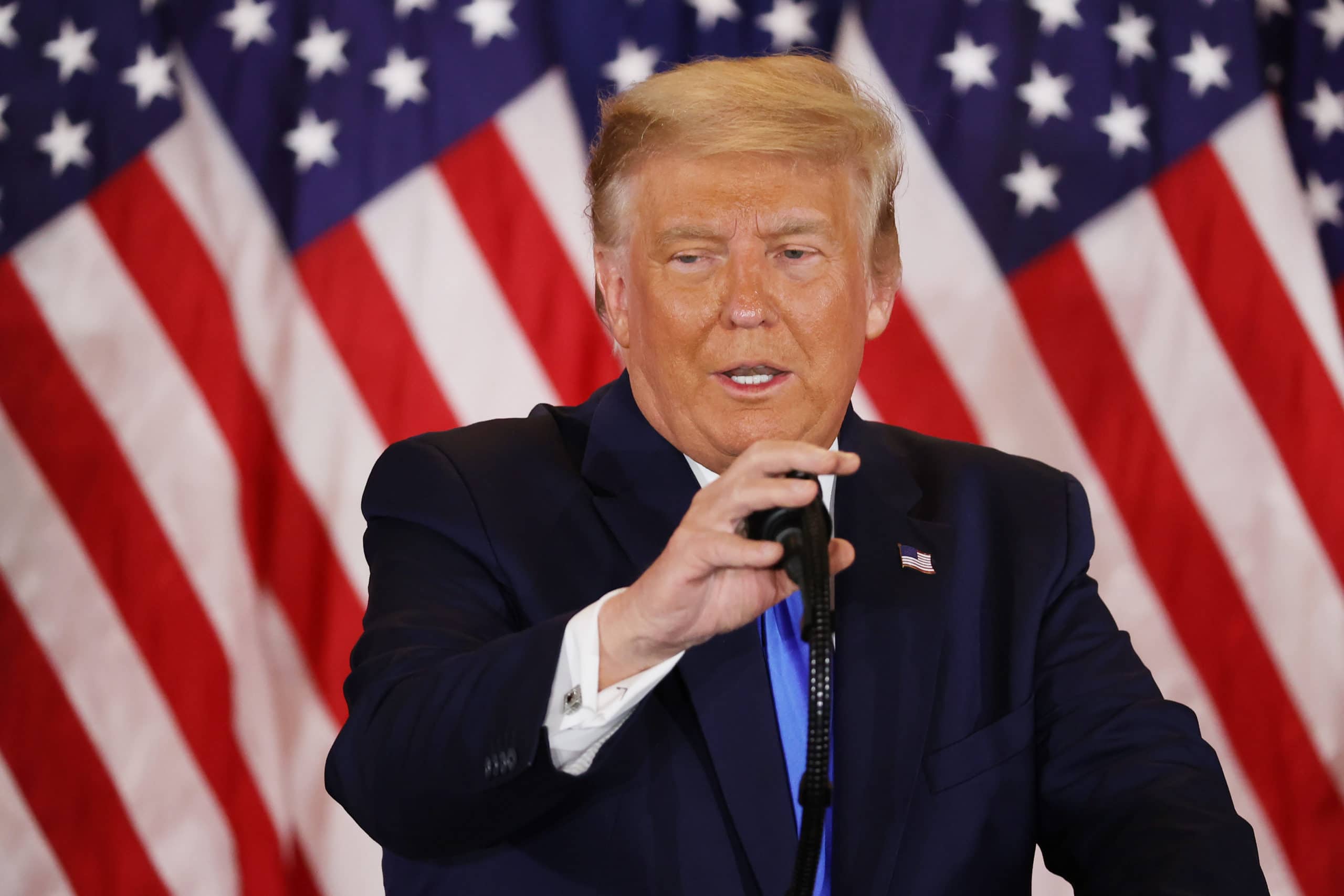After Joe Biden expressed optimism about his prospects of winning the election during remarks in Wilmington, Delaware, President Trump fired off a tweet in which he falsely claimed votes were being “cast after the polls closed” and accused the Democratic nominee of trying to “steal” the election—a baseless accusation that the president has floated for weeks—and Twitter flagged the tweet for spreading misinformation about the election.
KEY FACTS
“We are up BIG, but they are trying to STEAL the Election,” Trump wrote in a tweet without proof, adding “Votes cannot be cast after the Polls are closed!”
Twitter slapped a label on the tweet, saying some of the “content shared in this Tweet is disputed and might be misleading about an election or other civic process.”
Facebook followed suit, placing a label on Trump’s tweet that did not comment on the content of the president’s message but did remind users that the results are not final.
Loading...
For weeks, Trump has laid the groundwork to object to results of the election he doesn’t like, and refused repeatedly to commit to a peaceful transfer of power.
The president has also repeatedly argued the results of the election must be known on election night, and falsely claimed “that’s the way it’s been and that’s the way it should be.”
Trump put out the tweet after Biden told a crowd in Wilmington, Delaware that he felt confident about the election results, saying, “We believe we’re on track to win this election.”
KEY BACKGROUND
There is no evidence votes were cast after the polls closed in any state, as the president baselessly claimed. Many states accept ballots postmarked on or before Election Day to account for mail delays.
WHAT TO WATCH FOR
Biden currently leads Trump in the electoral college vote 223 to 174, with several key battlegrounds not yet projected, including Arizona, Nevada, Wisconsin, Michigan, Pennsylvania and Georgia.
SURPRISING FACT
Historian Michael Beschloss notes we did not know the winner on election night during six presidential elections since 1960.
FURTHER READING
-By Jack Brewster, Forbes Staff
Loading...
